I have an object defined as such:
public class QuestionSetAssignee
{
[Required]
public int Id { get; set; }
[Required]
public string Name { get; set; }
public virtual ICollection<QuestionSet> QuestionSets { get; set; }
public override int GetHashCode()
{
return Id.GetHashCode();
}
public override bool Equals(Object obj)
{
if (obj == null)
{
return false;
}
QuestionSetAssignee qsa = obj as QuestionSetAssignee;
return Id == qsa.Id;
}
}
The following statement:
QuestionSetAssignees.Contains(director)
in
public bool isEditable()
{
ApplicationDbContext db = new ApplicationDbContext();
QuestionSetAssignee director = db.QuestionSetAssignees.Find((int)QuestionSetAssigneeEnum.Director);
if (Conference.AcceptingDirectorApplications && QuestionSetAssignees.Contains(director))
{
return false;
}
return true;
}
returns false, when as far as i can tell is should return true. (Note: Conference.AcceptingDirectorApplications returns true)
In case it's not immediately clear, the director object and the HashSet objects come through as DynamicProxies (due to EF and object hierarchy).
Here is the director object:
and here is the QuestionSetAssignees object:
I do not have control over the type of QuestionSetAsignees as it is supplied by EF 6 (it is declared as an ICollection in the model. This also means I am unable to provide a compare object (well, as far as I know). All I want to do is be able to compare two QuestionSetAsignee objects. I have also tried implementing IEquatable, but that did not work.

